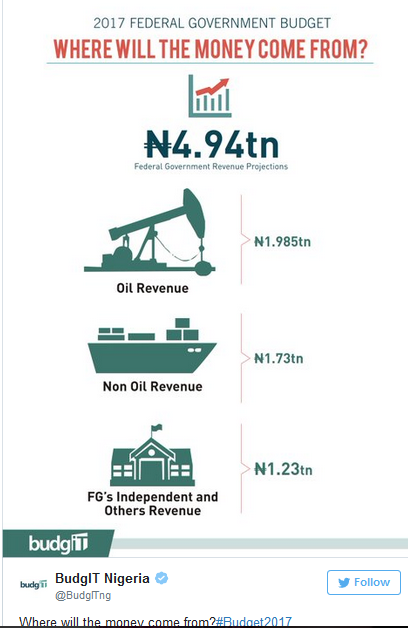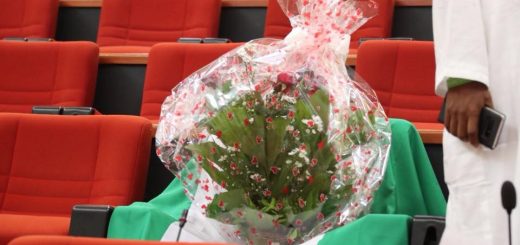How Buhari shut down N’Assembly for 2017's N7.28 trillion budget (10 quick facts)
- Here are the highlights of the N7.28 trillion federal government budget.

President Muhammadu Buhari, Wednesday, presented the 2017 Budget before the National Assembly (NASS).
He named it ‘Budget of Recovery and Growth’. He had named the 2016 ‘Budget of Positive Change’.
Here are the highlights of the N7.28 trillion federal government budget.
1. The budget was higher than this year’s N6.07 trillion by about 19.95 per cent

2. It was based on crude oil benchmark price of $42.5 per barrel

The benchmark for 2016 was $38 per barrel.
3. It was based on daily crude oil production of 2.2 million barrels per day, same as the figure in last year’s budget

4. It was based on an exchange rate of N305 to the dollar as against N197 to the dollar in 2016

5. About N2.243 trillion will be spent on capital projects and N2.9 trillion as recurrent expenditure

The 2016 budget had N1.8 trillion and N2.65 trillion capital and recurrent budget respectively. Experts say capital allocations should take the larger share of a healthy budget.
6. N1.66 trillion has been allocated for servicing of domestic debts

N1.3 trillion of this was earmarked for the same purpose in the 2016 budget. Foreign debt is expected to take about N175.9 billion as against N54.5 billion for 2016.
7. Top Recurrent Expenditure: Interior gets N482 billion; Education – N398 billion; Defence – N325 billion; Health – N252 billion

8. The budget of the Judiciary was raised from N70bn to N100bn

Experts say this is good but call for transparency.
9. Where’s the money coming from?
10. The budget must be approved by NASS before it can become law

Go to Source
Author: Kemi Filani









